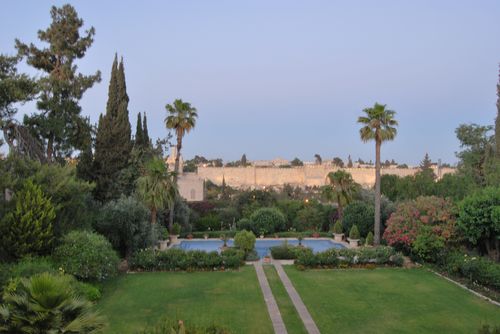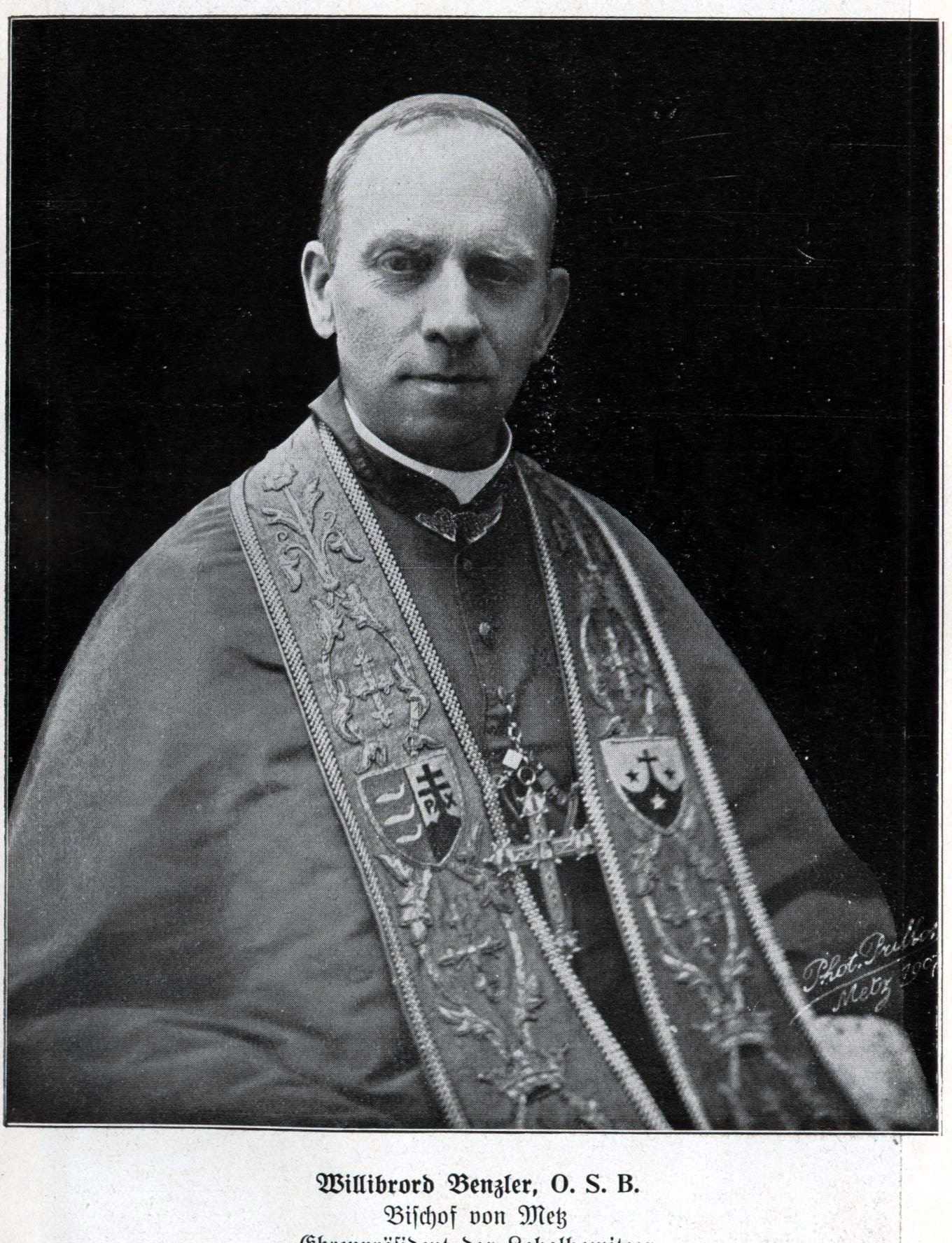|
Briand-Ceretti Agreement
The Briand- Cerretti Agreement is a 1926 agreement whereby French diocesan bishops are nominated by the Vatican after a process involving the French Ministries of the Interior and of Foreign Affairs. See drop-down essay on "The Third Republic and the 1905 Law of Laïcité" Description This agreement saw the resolution of an impasse whereby the Vatican had refused to recognise the Associations Culturelles created by the 1905 French law on the Separation of the Churches and the State extending the 1901 French law on associations; these laws had been accepted by the Jewish and Protestant religious bodies. The agreement made possible the forming of Associations Diocésaines with members appointed by the bishops. In the case of the Concordat dioceses of Strasbourg and Metz it has remained the French President who, after consultations with the Vatican, makes the appointments of diocesan bishops, which are published in the ''Journal officiel de la République Française''. The Briand ... [...More Info...] [...Related Items...] OR: [Wikipedia] [Google] [Baidu] |
Aristide Briand
Aristide Pierre Henri Briand (; 28 March 18627 March 1932) was a French statesman who served eleven terms as Prime Minister of France during the French Third Republic. He is mainly remembered for his focus on international issues and reconciliation politics during the interwar period (19181939). In 1926, he received the Nobel Peace Prize along with German Foreign Minister Gustav Stresemann for the realization of the Locarno Treaties, which aimed at reconciliation between France and Germany after the First World War. To avoid another worldwide conflict, he was instrumental in the agreement known as the Kellogg–Briand Pact of 1928, as well to establish a "European Union" in 1929. However, all his efforts were compromised by the rise of nationalistic and revanchist ideas like Nazism and Fascism following the Great Depression. Early life He was born in Nantes, Loire-Inférieure (now Loire-Atlantique) of a '' petit bourgeois'' family. He attended the Nantes Lycée, where, in 187 ... [...More Info...] [...Related Items...] OR: [Wikipedia] [Google] [Baidu] |
Journal Officiel De La République Française
A journal, from the Old French ''journal'' (meaning "daily"), may refer to: *Bullet journal, a method of personal organization *Diary, a record of what happened over the course of a day or other period *Daybook, also known as a general journal, a daily record of financial transactions * Logbook, a record of events important to the operation of a vehicle, facility, or otherwise *Record (other) *Transaction log, a chronological record of data processing *Travel journal In publishing, ''journal'' can refer to various periodicals or serials: *Academic journal, an academic or scholarly periodical ** Scientific journal, an academic journal focusing on science ** Medical journal, an academic journal focusing on medicine **Law review, a professional journal focusing on legal interpretation * Magazine, non-academic or scholarly periodicals in general **Trade magazine, a magazine of interest to those of a particular profession or trade ** Literary magazine, a magazine devoted to li ... [...More Info...] [...Related Items...] OR: [Wikipedia] [Google] [Baidu] |
1926 In France
Events from the year 1926 in France. Incumbents *President: Gaston Doumergue *President of the Council of Ministers: ** until 20 July: Aristide Briand ** 20 July-23 July: Édouard Herriot ** starting 23 July: Raymond Poincaré Events *9 May – French navy bombards Damascus because of Druze riots. *15 July – Grand Mosque of Paris inaugurated. *24 November – The village of Rocquebillier on the Riviera is almost destroyed in a massive hailstorm. *The ''Guide Michelin'' first awards stars to restaurants. Arts and literature *Société Nationale des Beaux-Arts institutes the ''Prix Puvis de Chavannes'', named after co-founder and first president, Pierre Puvis de Chavannes. Sport *20 June – Tour de France begins. *18 July – Tour de France ends, won by Lucien Buysse of Belgium. Births January to June *17 January – Robert Filliou, artist (died 1987) *2 February – Philippe Chatrier, tennis player (died 2000) *7 February – Pierre Villette, composer (died 1998) *11 Feb ... [...More Info...] [...Related Items...] OR: [Wikipedia] [Google] [Baidu] |
History Of Catholicism In France
History (derived ) is the systematic study and the documentation of the human activity. The time period of event before the invention of writing systems is considered prehistory. "History" is an umbrella term comprising past events as well as the memory, discovery, collection, organization, presentation, and interpretation of these events. Historians seek knowledge of the past using historical sources such as written documents, oral accounts, art and material artifacts, and ecological markers. History is not complete and still has debatable mysteries. History is also an academic discipline which uses narrative to describe, examine, question, and analyze past events, and investigate their patterns of cause and effect. Historians often debate which narrative best explains an event, as well as the significance of different causes and effects. Historians also debate the nature of history as an end in itself, as well as its usefulness to give perspective on the problems of the p ... [...More Info...] [...Related Items...] OR: [Wikipedia] [Google] [Baidu] |
French Legislation For The Prevention And Repression Of Cultic Groups
The 2001 About-Picard law [abu pika:r], officially Law No. 2001-504 of June 12, 2001, aimed at strengthening the prevention and repression of sectarian movements that undermine human rights and fundamental freedoms (French language, fr: loi n° 2001-504 du 12 juin 2001 tendant à renforcer la prévention et la répression des mouvements sectaires portant atteinte aux droits de l'homme et aux libertés fondamentales) is a controversial piece of French legislation, which broadly speaking, makes it possible to act against organisations when such organisations have become involved in certain crimes. The law is targeted at sects and movements deemed cultic (''mouvements sectaires'') that "undermine human rights and fundamental freedoms", as well as "mental manipulation". The law has caused controversy internationally, with some commentators alleging that it infringes on religious freedom while proponents contend that it reinforces religious freedom. Background on government and relig ... [...More Info...] [...Related Items...] OR: [Wikipedia] [Google] [Baidu] |
Catholic Church In France
, native_name_lang = fr , image = 060806-France-Paris-Notre Dame.jpg , imagewidth = 200px , alt = , caption = Cathedral Notre-Dame de Paris , abbreviation = , type = National polity , main_classification = Catholic , orientation = Christianity , scripture = Bible , theology = Catholic theology , polity = , governance = CEF , structure = , leader_title = Pope , leader_name = , leader_title1 = President , leader_name1 = Éric de Moulins-Beaufort , leader_title2 = Primate of the Gauls , leader_name2 = Olivier de Germay , leader_title3 = Apostolic Nuncio , leader_name3 = Celestino Migliore , fellowships_type = , fellowships = , fellowships_type1 = , fellowships1 = , division_type = , division = , division_type1 = , divis ... [...More Info...] [...Related Items...] OR: [Wikipedia] [Google] [Baidu] |
Concordat Of 1801
The Concordat of 1801 was an agreement between Napoleon Bonaparte and Pope Pius VII, signed on 15 July 1801 in Paris. It remained in effect until 1905, except in Alsace-Lorraine, where it remains in force. It sought national reconciliation between revolutionaries and Catholics and solidified the Roman Catholic Church as the majority church of France, with most of its civil status restored. This resolved the hostility of devout French Catholics against the revolutionary state. It did not restore the vast church lands and endowments that had been seized upon during the revolution and sold off. Catholic clergy returned from exile, or from hiding, and resumed their traditional positions in their traditional churches. Very few parishes continued to employ the priests who had accepted the Civil Constitution of the Clergy of the Revolutionary regime. While the Concordat restored much power to the papacy, the balance of church-state relations tilted firmly in Napoleon's favour. He ... [...More Info...] [...Related Items...] OR: [Wikipedia] [Google] [Baidu] |
Consulate General Of France In Jerusalem
The Consulate General of France in Jerusalem (french: Consulat Général de France à Jérusalem) began its tumultuous history in the early 17th century. In 1535, the date of the first Capitulations of the Ottoman Empire, Capitulation between France and the Ottoman Empire, France was granted the right to appoint Consul (representative), consuls in the cities of the Empire.Hershlag Zvi Yehuda. Introduction to the modern economic history of the Middle-East. E. J. Brill, Leiden, The Netherlands (1980) The Capitulations constituted the legal basis of the French Protectorate of missions, protectorate over the Holy Places, Catholic Christians, and by extension, Eastern Christianity, Orthodox Christians. In 1623, King Louis XIII appointed the first consul in Jerusalem "for the Glory of God and to relieve the pious pilgrims whom by devotion visit the Holy Places." The presence of consuls in Jerusalem was intermittent until 1843. Amidst the growing competition between European powers over t ... [...More Info...] [...Related Items...] OR: [Wikipedia] [Google] [Baidu] |
French Citizens
French nationality law is historically based on the principles of ''jus soli'' (Latin for "right of soil") and ''jus sanguinis'', according to Ernest Renan's definition, in opposition to the Germany, German definition of nationality, ''jus sanguinis'' (Latin for "right of blood"), formalised by Johann Gottlieb Fichte. The 1993 Pierre Méhaignerie, Méhaignerie Law, which was part of a broader immigration control agenda to restrict access to French nationality and increase the focus on ''jus sanguinis'' as the citizenship determinant for children born in France, required children born in France of foreign parents to request French nationality at adulthood, rather than being automatically accorded citizenship. This "manifestation of will" requirement was subsequently abrogated by the Élisabeth Guigou, Guigou Law of 1998, but children born in France of foreign parents remain foreign until obtaining legal majority. Children born in France to tourists or other short-term visitors d ... [...More Info...] [...Related Items...] OR: [Wikipedia] [Google] [Baidu] |
Liberation Of France
The liberation of France in the Second World War was accomplished through diplomacy, politics and the combined military efforts of the Allied Powers of World War II, Allied Powers, Free French forces in London and Africa, as well as the French Resistance. Battle of France, Nazi Germany invaded France in May 1940. Their rapid advance through the undefended Ardennes caused a crisis in the French government; the French Third Republic dissolved itself in July, and handed over French Constitutional Law of 1940, absolute power to Marshal Philippe Pétain, an elderly hero of World War I. Pétain signed an Armistice of 22 June 1940, armistice with Germany with the north and west of France under German military administration in occupied France during World War II, German military occupation. Pétain, charged with calling a Constitutional Authority, instead established an authoritarian government in the spa town of Vichy, in the southern ''zone libre'' ("free zone"). Though nominally inde ... [...More Info...] [...Related Items...] OR: [Wikipedia] [Google] [Baidu] |
Willibrord Benzler
Willibrord Benzler OSB (16 October 1853 – 16 April 1921) was the Roman Catholic Bishop of Metz from 1901 to 1919. Life Born as Karl Heinrich Johann Eugen Benzler in Niederhemer, Westphalia, the eldest son of Karl Benzler, an innkeeper, and his wife, Klementine (née Kissing), he was baptized at SS Peter and Paul Church on 24 October 1853. After attending the elementary school in Niederhemer and the ''höhere Bürgerschule'' in Menden, he went on to study at the secondary school in Attendorn, and (from 1867 to 1871) at the gymnasium Paulinium in Münster, where he graduated. After beginning to study architecture in Cologne, in December 1871 he changed to study philosophy and Catholic theology at the University of Innsbruck. In the autumn of 1872 he joined the Collegium Canisianum maintained by the Jesuits; however, his application to join the order was denied in 1874. Instead he joined the Benedictine abbey of Beuron and chose the name Willibrord. On 28 August 1877 he wa ... [...More Info...] [...Related Items...] OR: [Wikipedia] [Google] [Baidu] |

.jpg)




